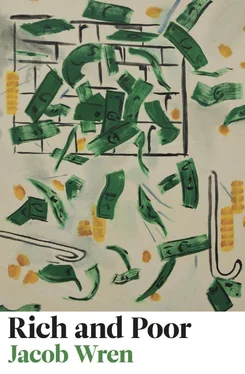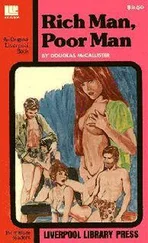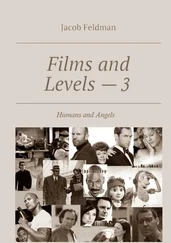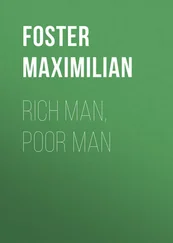I realized I had walked all the way home. The concierge buzzed me in. I took a long hot shower, and carefully thought over whether or not I had anything to do before I left again early tomorrow. The dry cleaning had been delivered and was already packed. I had already been checked in. All of this was done for me without even having to ask. If I think back to what it was like when I was starting out, this is a level of effortless comfort I would have barely dreamed of. I knew I wanted the world, but in a way thought I would need to keep working hard for it right until the end. I still work hard, but so many things are now taken care of. I didn’t lose my temper with that prostitute. I really wonder if I’m going soft. A soft life makes soft thoughts, soft actions. But when you’re getting older, its also difficult, even pathetic, to pretend that you’re not.
I had been travelling for so many months, a world tour or never-ending vacation. The organization was so large it at times seemed endless. My apartment had been cleaned today, while I was out, and it was pristine, spotless. It would be cleaned again, I believe several times, before I returned. It looked like an apartment in which no one ever lived. I look at the bookshelf, row after row of poetry. I was hoping to find a copy of my own book but then remember I got rid of it. There was a moment not so long ago when I was standing in front of this shelf and acted on the strong urge to get every single copy out of my space, out of every single one of my houses. I believe I did a thorough job. It was something about the way my own face stared out at me from the cover. If I think about this now, it seems like the action of someone slowly losing his grip. I wonder why I’m so tired, then realize I probably walked more today than I have in many years. I set my alarm before going to sleep. As usual, the driver will pick me up three hours before my flight. I’ll eat breakfast in the first-class lounge. I go to the shelf and pick out a few poetry books to take with me. A few old favourites and a few I haven’t gotten to yet. As I slip the books into my carry-on, it occurs to me that there really are a lot of poems about death, that I’ve always read many poems about dying, but had almost never noticed them before. They were always the ones I lightly skimmed, and I thought that maybe I could start reading these poems more carefully. It was almost nothing, but it was also a decision about my life.
2.
I bring the mentor with me to the next meeting. Nighttime. A few hundred of us huddled around a large brushwood fire. I let the mentor begin: “What we’re here to discuss, to work towards, is not simply a one-day strike or a longer strike. It’s something else, the idea of solidarity, of standing up for yourself but doing so all together.” A few of the workers who felt fluent enough to translate were doing so, as small groups of other workers gathered around them. The mentor paced herself accordingly, making a statement then leaving room for translation. The effect was poignant, as the murmuring of different languages filled each pause.
“Solidarity doesn’t mean we all need to agree on everything. It doesn’t even mean we must come together on every point.” Another pause for translation. “It simply means we pick a few topics around which to all push in the same direction. It might seem that being here, some of you without papers, waiting for the buses to come, you have no basic rights. But where there are profits there are possibilities, the possibility to get a fair share of the wealth each of you create.” I looked around. I didn’t know exactly how old the mentor was; she had that kind of timeless energy it was difficult to pin down, but she spoke with such experience and authority. Everyone was listening in a different way, with greater respect.
“These are all questions of principle on which it is fairly easy to agree. What is more difficult are questions of strategy, of tactics. We know the bosses possess an almost infinite greed, and will not give an inch unless we forcibly take it. The question of how we take it — this question of strategy — has a great deal to do with whether we succeed or fail. A one-day strike might seem like a good strategy at first glance, but let’s consider the matter more fully.” Another pause. I feel nervous about what she’ll say next. “If we strike for one day it’s like a warning shot. It does show we are organized, that we have the strength and power to bring everything to a halt. But it also shows our hand. It gives the bosses a chance to consider their next move, to retaliate. We might have only one bullet and we shouldn’t waste it on a warning. Like David versus Goliath, we should take our best aim and, if possible, use this single bullet for the kill.”
I didn’t know she was going to say this. She should have consulted me first. This was a major shift in direction. But she knows so much more than me, is so much more experienced. I hope against hope that she is considering these matters with the full seriousness they deserve. As others finish translating, a new intensity comes over the gathering. She lets this intensity settle before continuing. “What I am proposing is that we strike with the intention to win. Which means we must keep the strike going until our demands are met.” She looks over at me and I’m not quite sure how to interpret it. Is she looking for support, that I have her back despite the fact that she’s so full of surprises. Or is her look more arrogant, as if to say: look, this is how it’s done. “So what are these demands exactly? In my opinion, doubling the amount for each token is still thinking small, holds us in the realm of piecework. We must think bigger than that. A basic hourly wage in keeping with the national standard. You are the lowest paid workers in this country and that is not acceptable. In my opinion we should also be given protective gear to shield each of you from the harmful effects of pesticides. And the elimination of all deductions would be the final, clear choice. Three reasonable demands. Anyone who says they cannot be achieved suffers from a lack of imagination.”
What happened next was something I’ll never forget. At the time I couldn’t quite follow it, so many questions, doubts and intensities through which I viewed the situation. Each person who spoke, with or without translation, doubled down on their commitment to this plan and their desire to win these demands at all costs. These three demands were repeated again and again, and each time they seemed more possible, more obvious, more like something we all must do. Something felt clear to me, the mentor was a voice we had been waiting for. I’m not sure I’d ever had a feeling quite like that, a feeling, almost overwhelming, that there was actually strength in numbers. That there were enough of us here in the dust to win. After everyone had their say (we must have spoken for several hours) I found myself walking along the outer edge of the field with the mentor. We were both supercharged, I could sense this energy coming from her and between us. But as we continued to walk in silence, she was also growing pensive, lost in thought, as if the intensity of her earlier speech was now draining away, leaving her with nothing. I was about to ask if she was all right when she started.
— That didn’t go how I thought.
— How did you think it would go?
— I thought there would be more resistance. That they’d resist more.
I considered what she was saying. When I first stumbled upon the field, when I first proposed the idea of a union to avoid having to explain how I ended up here, I was expecting to be told it was impossible, a stupid idea, that I should go back where I came from and keep my stupid ideas to myself. But almost the opposite had happened. People here were ready for the gust of fresh air that our arrival represented, ready for a fight, to stand up for themselves. I wondered if it had anything to do with something I had felt since arriving, something I was never quite able to put into words. I now found myself wondering if this wordless feeling had to do with having nothing left to lose. A cliché that here in the fields felt worse than true.
Читать дальше












